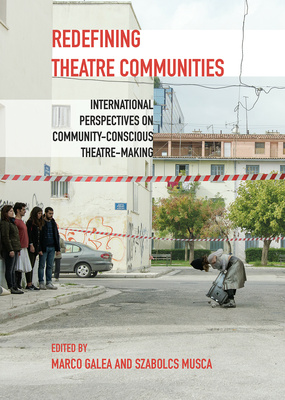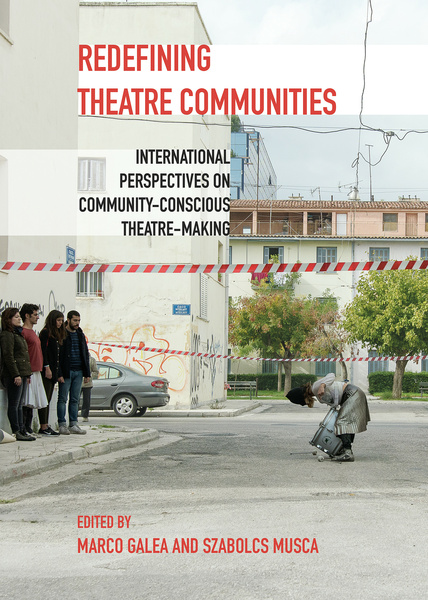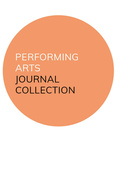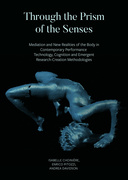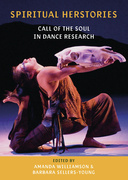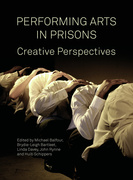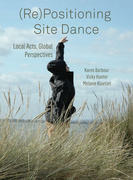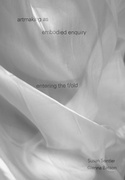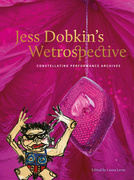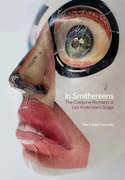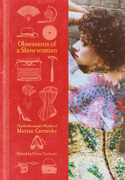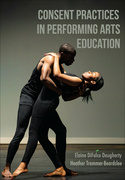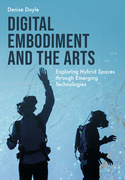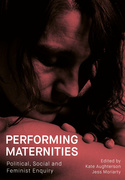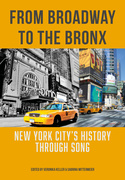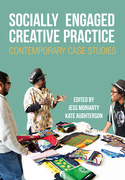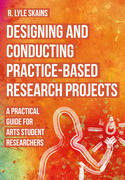Redefining Theatre Communities (Book)
International Perspectives on Community-Conscious Theatre-Making
Redefining Theatre Communities explores the interplay between contemporary theatre and communities. It considers the aesthetic, social and cultural aspects of community-conscious theatre-making. It also reflects on transformations in structural, textual and theatrical conventions, and explores changing modes of production and spectatorship. 15 b/w illus.
Edition
Redefining Theatre Communities explores the interplay between contemporary theatre and communities. It considers the aesthetic, social and cultural aspects of community-conscious theatre-making. While doing so, the volume reflects on recent transformations in structural, textual and theatrical conventions and traditions, and explores the changing modes of production and spectatorship in relation to theatre communities. The essays edited by Marco Galea and Szabolcs Musca present an array of emerging perspectives on the politics, ethics, and practices of community representation on the contemporary international theatre landscape. An international, interdisciplinary collection featuring work by theatre scholars, theatre-makers and artistic directors from across Europe and beyond, Redefining Theatre Communities will appeal to those interested in the diverse forms of socially engaged theatre and performance.
Dr Szabolcs Musca is research fellow at the Centre for Theatre Research (CET) at the University of Lisbon (Portugal), founding director of New Tides Platform (UK) and project lead of Migrant Dramaturgies Network, currently leading an international research project on theatre and migration in Europe.
Dr Marco Galea is a senior lecturer in theatre studies at the University of Malta. He has written mainly on nineteenth- and twentieth-century theatre in Malta and on postcolonial theatre and literature.
Table of Figures
Acknowledgements
Introduction
Marco Galea and Szabolcs Musca
PART I: Theatre Communities: Traces, Places and Belonging
Communal Solidarity and Amateur Theatre in Post-Revolutionary Russia: Theoretical Approaches – Stefan Aquilina
Theatre in Malta: Which Spaces Does the Community Occupy? – Vicki Ann Cremona and Ruben Paul Borg
Performance, Dislocation and Spirituality: Adrift Together – Zoe Zontou
PART II: Performing Communal Identities: Ethics, Politics and Affect
The Politics of Spectatorship: Community, Ethics and Affect in Contemporary British Rewritings of Ancient Tragedies – Maria Elena Capitani
Living and Working in Tepantor: Understanding Political Theatre and the Community– Pujya Ghosh
Bodies Without Organs and Organs Without Bodies: The Maltese Experience of Creating National Theatres – Marco Galea
PART III: 'Glocal' Representations of Theatre Communities
Local and Global Stages: Translating Communities in Hybrid Cultural Spaces –Szabolcs Musca
The Economic Communities of the Edinburgh August Festivals: An Exclusive 'Global Sense of Place' and an Inclusive 'Local Sense of Space' – Evi Stamatiou
Strategies of Empowerment: Postmigrant Theatre at the Ballhaus Naunynstrasse – Hasibe Kalkan
PART IV: Creative Encounters: Changing Ecologies
Community and Ownership: Uncovering New Voices at the Royal Court Theatre – Mark O'Thomas in conversation with Vicky Featherstone
UrbanDig Project: Theatre for Neighbourhoods – Zoe Zontou in conversation with George Sachinis
Community Theatre as Political Theatre: Towards a New Political Theatre Practice – Marius Bogdan Tudor and Ionuț Sociu in conversation with David Schwartz
PART V: Emerging Practices: Connecting Through the Digital and the Verbatim
New Technologies for a New Audience? Using Transmedia Storytelling towards a New Experience Design Form – Ágnes Bakk
Manipulation of Reality Through an Interactive Game: Remote X as an Example of New Modes of Spectatorship – Nad’a Satkova
Feeding Back: Verbatim Theatre and/as Communal Practice – Bettina Auerswald
Conclusion
Marco Galea and Szabolcs Musca
Notes on Contributors
'Editors Marco Galea and Szabolcs Musca have gathered together an impressively expansive and international body of essays to create this volume. [...] It will be of value to scholars of contemporary theatre who wish to expand their repertoire of practices and locations in which a diversity of projects are taking place. It opens out a range of readings of community in relation to theatre and performs a valuable contribution to thinking about the complexities of theatre in relation to the communities within which it exists. It also encourages the reader to think about the communities that theatre, and creativity more generally, can build.'
'This book, written by both academics and theatre practitioners, aims to facilitate the relationship between theatre and communities via creating a “community-conscious theatre” (Galea and Musca 2019, 1). [...] The inclusion of Malta and Romania has dislodged the book’s central argument from the center to the margins thus enhancing the book’s outreach. [...] The different methods of theatre making from within the communities rather than for the communities is another strong methodological strategy. The honest, candid account of the theatre artists/ practitioners struggle with funding in their performances has not only opened the discussion of a timely matter under the shadow of Brexit, but also reflected the behind-thescenes challenges we are most often unaware of. The rich background of the multiple authors adds a layer to their research and personal experience in engaging with marginalised communities. The book is focused on the teaching of performance as research on multiple levels—it provides innovative engagement tools to cater for different audiences; offers suggestions and strategies on how to deal with cultural heritage, memory, vulnerable groups, and forgotten theatre spaces, and finally, imparts upon its reader a methodological approach for any theatre practitioner on how to revive mythical, and cultural stories by bringing the past to the present to discuss current issues.'

